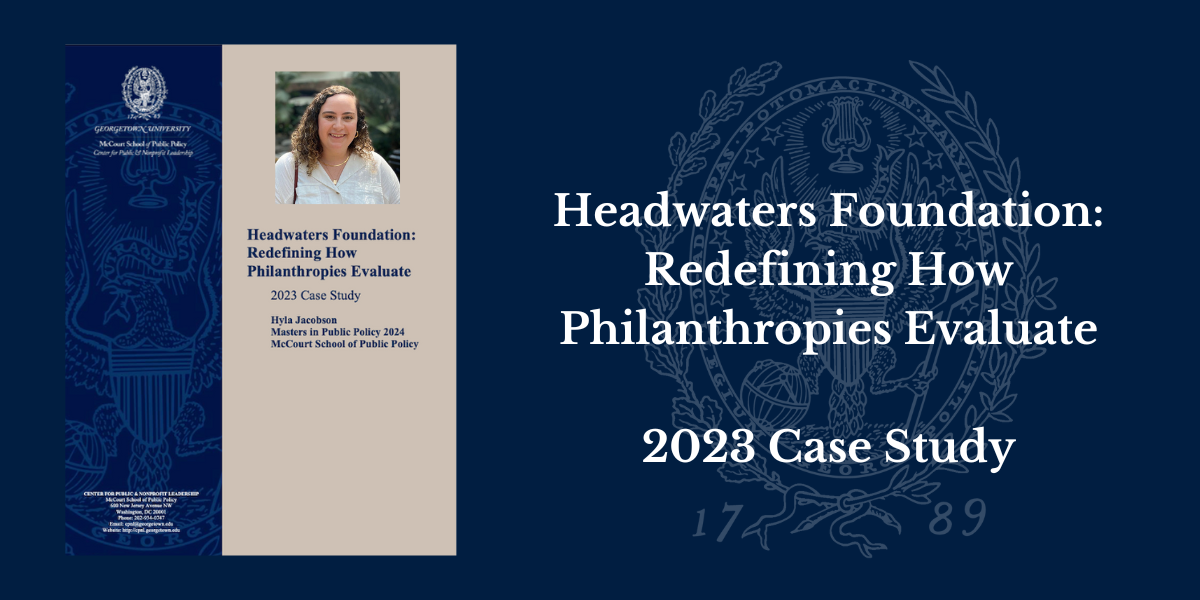Case Study: Headwaters Foundation – Redefining How Philanthropies Evaluate

Posted in News Story
During the 2022-2023 academic year, the Center for Public and Nonprofit Leadership provided opportunities for McCourt School graduate students to join the Center and conduct independent research. Hyla Jacobson served as a Pablo Eisenberg Public Interest Research Fellow, writing a case study on the Headwaters Foundation’s trust-based evaluation process.
Through her research on Headwaters Foundation, a Montana-based health-conversion foundation that creates community-led solutions to improve the health and well-being of residents in in the Flathead nation and Montana’s 15 westmost counties, Hyla focused on how trust-based philanthropy can help create a paradigm shift, specifically in an organization’s evaluation process. In seeking to “bend the power dynamics” that exist between foundations, grantees, and the communities they serve, Headwaters prioritizes people with lived experience, not the foundation, to define the problem, dictate solutions, and determine what success looks like in their community.
By conducting interviews with key staff, board members and grantees from Headwaters Foundation, including the foundation’s CEO, Brenda Solorzano, Hyla learned about their application of a trust-based philanthropy approach. This approach seeks to challenge traditional philanthropy by adopting a core set of values “rooted in advancing equity, shifting power, and building mutually accountable relationships.”
Instead of setting certain evaluation protocols and metrics for grantees that were burdensome and ineffective, Headwaters Foundation developed their evaluation process in partnership with their grantees to determine what successful grantmaking looks like. Unlike some traditional philanthropies, Headwaters Foundation does not require formal written reports from their grantees, but instead builds relationships with their grantees through supportive check-in conversations. This has created a safe space for grantees to learn from mistakes and challenges without the concern that funding will be impacted.
Hyla spoke with one of Headwaters’ grantees, Dorey Rowland, who is a Local Collaboration Coordinator for Zero to Five Lincoln County, a network that is made up of five “locally-led coalitions across Western Montana and a statewide advocacy office in Helena, all working together to give children a great start in life and a promising future.” Shifting away from arduous requirements and annual grant writing deadlines, Dorey described Headwater’s evaluation process as having “transparency, integrity, and flexibility.” Using a trust-based philanthropic approach, Headwaters Foundation has focused on the value of long-term outcomes, ongoing learning, developing a culture of transparency, and being receptive to feedback from grantees.
This case study may be useful to other foundations seeking to take a trust-based approach to philanthropy by providing an example of how to challenge existing power dynamics in philanthropy, specifically within the evaluation process.
Read the entire case study here.
